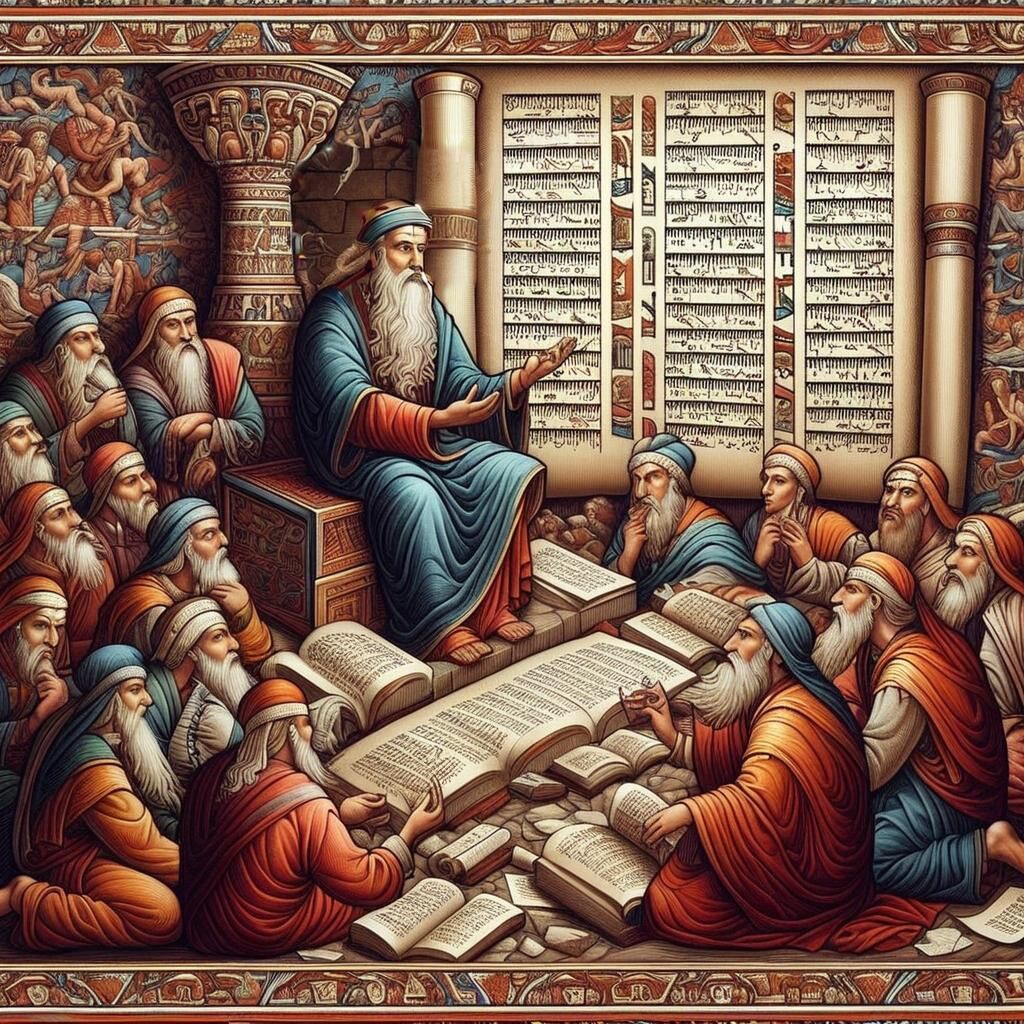Greetings, saints of the Most High! Welcome to another installment of the Messianic Torah Observer. Today, we delve into the intriguing topic of our Melchizedekian Priestly Pedigree, focusing on Jasher’s hidden chronicles.
In Part 3, we explored the theological implications of the Avram-Melchizedek encounter, discussing the dual offices of priesthood and kingship, the blessing conferred upon Avram, the significance of tithing, and the mysterious nature of Melchizedek. We also examined various religious perspectives on Melchizedek, including those from Catholicism, Islam, and Messianic Judaism.
Jewish legend and tradition often identify Shem, Noah’s righteous son, as Avram’s Melchizedek. However, there are several issues with this theory, including the lack of canonical biblical evidence and the improbability of Shem’s lifespan overlapping with Avram’s. Despite these concerns, the book of Jasher perpetuates this connection, presenting a narrative where Shem is indeed Avram’s Melchizedek.
Jasher’s account embellishes the biblical story, referring to Melchizedek as Adonizedek and describing a community meeting with Avram, bearing bread and wine. Interestingly, Jasher omits Melchizedek’s blessing of Yehovah, a curious detail given some ancient rabbinic opinions.
The narrative continues with Shem passing his prophecy school to Eber, his great-grandson, while the Melchizedekian priesthood is conferred upon Avram. This lineage, according to Jasher, includes notable figures like Adam, Enoch, and Noah, culminating in Avram.
However, the Jasher narrative raises questions about the authenticity and accuracy of these accounts. The Melchizedekian priesthood, as described in the Torah, operates outside biological heritage lines and temple sacrificial systems, foreshadowing the Spirit and Truth worship Yeshua spoke of.
Despite the conflicts between Jasher’s and the Torah’s accounts, we can glean significant insights into our Melchizedekian priestly pedigree. Concepts of righteousness, priestly conduct, obedience, and steadfast commitment to the faith form the foundation of our priestly calling. As students of Yahoshua’s Great School of Prophecy, we are in a season of training and preparation for our future roles in the Kingdom of Yehovah.
In conclusion, while I have my reservations about Jasher’s account, it offers valuable lessons about the godly elements that make up our Melchizedekian priestly pedigree. As we continue this series, we will explore these elements further, preparing us to serve as Melchizedekian kings and priests in the coming Kingdom of Yah.
May you be most blessed, fellow saints in training. Let us embrace our calling and prepare for the roles we are destined to fulfill.
Worshiping God Throughout the Year — Thoughts and Reflections on Torah Reading 120
Shabbat Shalom beloved of Yeshua Messiah This week's Torah Reading is the 120th portion of the 3-year Torah Portion reading cycle. Num 28.1-29.40 contains this week's Torah Reading. I’ve entitled this teaching: Worshiping God Throughout the Year — Thoughts and...
The Generational Inheritance Covenant Realized — Thoughts & Reflections on Torah Reading 119
Shabbat Shalom beloved of Yeshua Messiah. This week's Torah Reading is the 119th portion of the 3-year Torah Portion reading cycle. Num 26:52-27:23 contains this week's Torah Reading. In last week's reading, Abba instructed Moshe to conduct a census of...
Learning to Fear God and Receive His Peace — Israel’s Inextricable Link to Our Salvation Part 4
After Paul’s conversion to the Way Faith, the Nazarene assemblies that were strewn throughout the Judean region, including the Galilee and Samaria, enjoyed a season of relative peace and unity. (Act 9:31) Those coming into the Way Movement, a movement that many...
The Call For God’s People to be Jealous with His Jealousy — Thoughts and Reflections on Torah Reading 118
And greetings elect of the Most High. Welcome back to the Messianic Torah Observer. I’m Rod Thomas, coming to you on Preparation Day, the 21st day of the 11th month of Yah’s biblical calendar year. That translates into 2/2/2024 on the pagan Roman Calendar....
Our God’s Blessings and Promises are Irrevocable — Thoughts and Reflections on Torah Reading 117
Greetings! Shabbat Shalom saints of the Most High. It is the 15th day of the 11th biblical calendar month and the 27th day of the 1st month of the Roman calendar year of 2024. I pray, trust, and hope that this week’s Thoughts and Reflections find you, your families,...
There’s a Little Balaam in All of Us–Thoughts and Reflections on Torah Reading 116
Shabbat Shalom saints of the Most High. It is the 8th day of the 11th biblical calendar month and the 20th day of the 1st month of the Roman calendar, 2024. I pray, trust, and hope that this week’s thoughts and reflections find you, your families, and your fellowships...
Nobody Told Me That the Road Would Be Easy, but He Didn’t Bring Me This Far To Leave Me–Thoughts and Reflections on Torah Reading 115
Greetings Saint of the Most High. Coming at you on this cold Sabbath morning in the DFW, on the first day of the 11th biblical calendar month, trusting and hoping that these Thoughts and Reflections on Torah Reading 115 find you, your family, and your fellowship is...
The Torah of the Red Heifer—A Foreshadow of Yeshua HaMashiyach–Thoughts and Reflections on Torah Reading 114
Shabbat Shalom, saints of the Most High. Coming to you on a cool and cloudy Sabbath in the DFW. I pray you, your families, and your fellowships are well and blessed. Our Parashah this week is found in Numbers 19:1-20:13. Although it covers Miriam's death and Moshe...
The Inherited Lie of Replacement Theology-Part 3 of Israel’s Inextricable Link to our Salvation Series
Greetings This is “Exposing the Lie that is Replacement Theology-Part 3 of Israel’s Inextricable Link to our Salvation.” Recap and Purpose of Post In part one we interpreted Master Yehoshua's statement to the woman at Jacob's well that salvation is of...
Aaron’s Budding Staff and the Responsibilities of the Levites-Thoughts and Reflections on Torah Reading 113
These are my Thoughts and Reflections on this week’s reading which is the 113th reading of the 3-year Torah Portion Cycle. It is found in Numbers/Bemidbar 17:1-18:32 (17:16-18:32). Our reading picks up immediately where the Korah incident left off. Remember from our...

